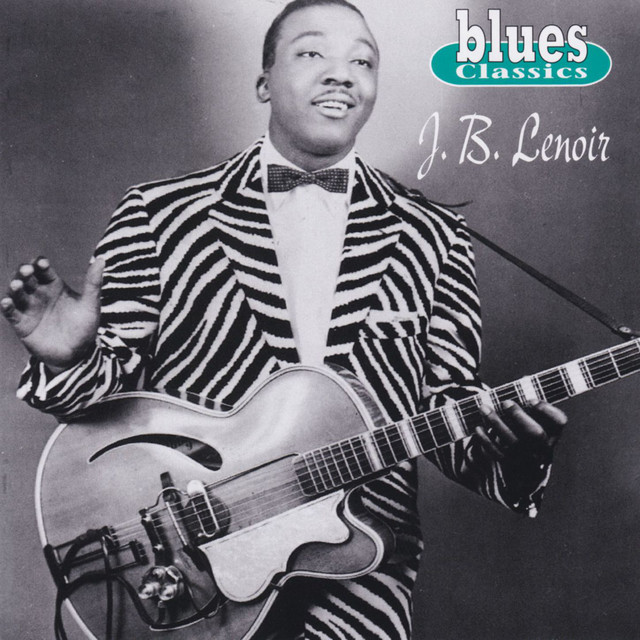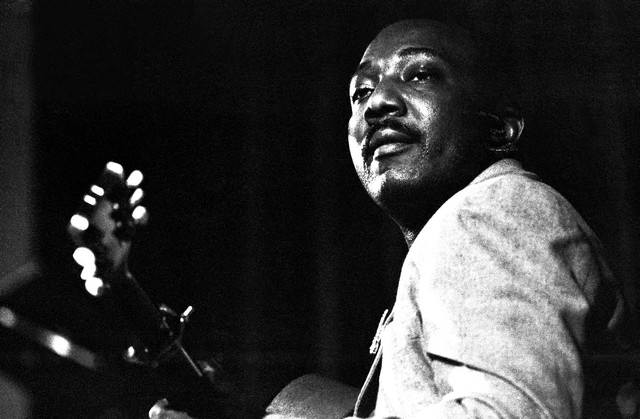J.B. Lenoir, an influential figure in the world of blues, was born on March 5, 1929, in Monticello, Mississippi. Known for his distinctive high-pitched voice, sharp social commentary, and unique stage presence, Lenoir became a significant contributor to the Chicago blues scene during the 1950s and 1960s. His music not only reflected the traditional elements of blues but also incorporated personal and political themes that resonated deeply with audiences.
Early Life and Musical Influences
Growing up in Mississippi, Lenoir was introduced to music at an early age. His father, who played the guitar, inspired his interest, and he began learning the instrument as a child. The rich musical culture of the South, combined with the influence of blues legends like Blind Lemon Jefferson and Lightnin’ Hopkins, shaped his distinctive style. By his teenage years, Lenoir was already performing locally, honing his craft and developing his unique sound.
Move to Chicago and Musical Breakthrough
In the late 1940s, J.B. Lenoir moved to Chicago, the epicenter of the electric blues movement. Here, he quickly integrated into the thriving blues community, collaborating with notable artists such as Big Bill Broonzy and Memphis Minnie. Lenoir’s vibrant performances and socially conscious lyrics set him apart in the competitive Chicago blues scene.
Lenoir signed with Chess Records in the early 1950s, a pivotal moment in his career. His early recordings, including hits like “Eisenhower Blues” and “Mama Talk to Your Daughter,” showcased his ability to blend traditional blues with biting commentary on contemporary social and political issues.
Musical Style and Themes
J.B. Lenoir’s music was characterized by his high-pitched, expressive vocals, rhythmic guitar playing, and the integration of African rhythms. Unlike many of his contemporaries, Lenoir often dressed in flamboyant attire, reflecting his bold personality both on and off stage.
His lyrics frequently addressed pressing social issues, including racism, war, and civil rights. Songs like “Vietnam Blues” and “Alabama Blues” offered candid reflections on the African American experience in the United States. His fearless approach to songwriting made him a voice for the voiceless, using his music as a platform to advocate for change.
Later Years and Legacy
In the 1960s, Lenoir’s career experienced a resurgence, partly due to the interest of European audiences in American blues. He recorded several albums, including “Alabama Blues” and “Down in Mississippi,” which were well-received for their raw emotion and socio-political content.
Tragically, J.B. Lenoir’s life was cut short when he died in a car accident on April 29, 1967, at the age of 38. Despite his untimely death, his music continued to inspire generations of blues musicians and enthusiasts. His influence can be heard in the works of artists like Bonnie Raitt, who helped revive interest in his music in later years.
Conclusion
J.B. Lenoir remains a pivotal figure in blues history, not only for his musical talent but also for his courage in addressing social issues through his art. His legacy lives on in the powerful messages of his songs, which continue to resonate with audiences around the world. Through his unique voice and unwavering commitment to truth, Lenoir carved out a place for himself as one of the most impactful blues musicians of his time.


No responses yet